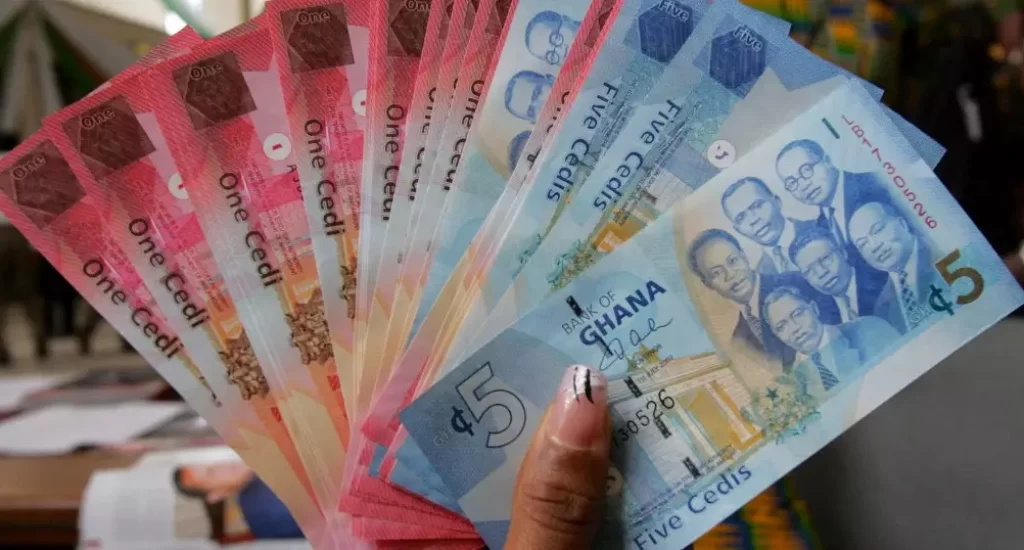Despite recent gains by the cedi, dollarisation in Ghana’s economy remains a growing concern, according to IMANI Africa Center for Policy and Education.
The organization highlighted that from luxury real estate and tuition to retail and hospitality services, businesses increasingly price their goods and services in US dollars, even when transactions occur entirely within Ghana.
The policy think tank pointed out that this practice highlights a deeper issue: a widespread lack of faith in the national currency. IMANI noted that although the Bank of Ghana (BoG) has raised alarms over this trend, enforcement efforts appear insufficient.
Bank of Ghana Governor Dr. Johnson Asiama recently stressed that this growing preference for the dollar undermines public trust in the cedi, violates legal tender laws, and threatens macroeconomic stability.
The policy think tank agreed, stating that as more citizens transact in dollars rather than the cedi, the BoG’s ability to manage inflation, control interest rates, and maintain monetary policy becomes severely compromised.
“When citizens begin to see the cedi as ‘secondary,’ the psychological shift is hard to reverse. Dr. Asiama has also announced BoG’s intention to step up enforcement against dollar pricing and finalize a regulatory framework for Virtual Asset Service Providers (VASPs). The rollout of Ghana’s eCedi is also expected to reinforce cedi-based transactions.
“Dollarisation is not just an economic issue, it’s also a legal one. Ghana’s laws are clear: the cedi is the only legal tender, and dollar pricing for domestic transactions is legally impermissible.”
IMANI Africa Center for Policy and Education
However, according to IMANI Africa, enforcement of this law remains almost non-existent, allowing the problem to persist. High-end apartments, private school fees, and luxury products continue to be priced in dollars, often without legal consequences.
IMANI warned that this lack of enforcement creates a dangerous precedent where compliance with currency laws appears optional.
However, the policy think tank emphasized that legal crackdowns alone will not reverse the situation. Addressing dollarisation effectively requires understanding its deeper psychological roots.

IMANI observed that Ghanaian businesses, and citizens alike, prefer the dollar not merely for convenience but from ingrained fear and historical experience. “Remember past periods when the cedi collapsed and holding dollars has become a psychological hedge, a form of insurance.”
Even during periods of currency strength, IMANI explained that businesses expect eventual depreciation, prompting them to default to the dollar. This “fear-driven dollar habit” has become deeply entrenched.
Reversing this trend will require more than policy announcements or stricter legal measures—it demands a shift in long-term confidence, IMANI argued.
IMANI Urges Economic Reforms To Stabilize Cedi, End Dolarisation
At the heart of this challenge lies Ghana’s broader economic competitiveness, according to the think tank. IMANI argued that without addressing structural weaknesses in the economy, efforts to stabilize the cedi and end dollarisation will remain ineffective.
The organization called for boosting Ghana’s economic competitiveness as a sustainable solution.
IMANI Africa suggested that strengthening the cedi must begin with improving the trade balance and focusing on the production of value-added goods for export, alongside strategic import substitution.

This would involve prioritizing sectors capable of generating export revenue beyond raw commodities and reducing dependency on imported finished goods.
In IMANI’s words, “Dollarisation isn’t just a bad habit, it’s a symptom of deeper weaknesses: policy inconsistency, weak public trust, poor enforcement, and low competitiveness.”
“Trying to eliminate dollarisation without fixing these will only lead to more informal market activity and financial distortions. Dollarisation won’t end through policing or patriotic appeals alone. It will end when people believe in the cedi again, because the economy makes sense, the rules are fair, and the long-term signals align with the promises.”
IMANI Africa Center for Policy and Education

Citizens and businesses must once again trust Ghana’s economic systems, laws, and financial strategies. Confidence will return only when policies prove consistent, rules appear fair, and long-term indicators align with promises.
Until such structural reforms are implemented, IMANI predicted that Ghana’s currency will remain vulnerable, its citizens reliant on foreign currency, and its economy exposed to persistent distortions.
READ ALSO: Ghana’s Cocoa Export Volumes Plunge by 50% Despite Revenue Surge in 2024 – Auditor General Report























